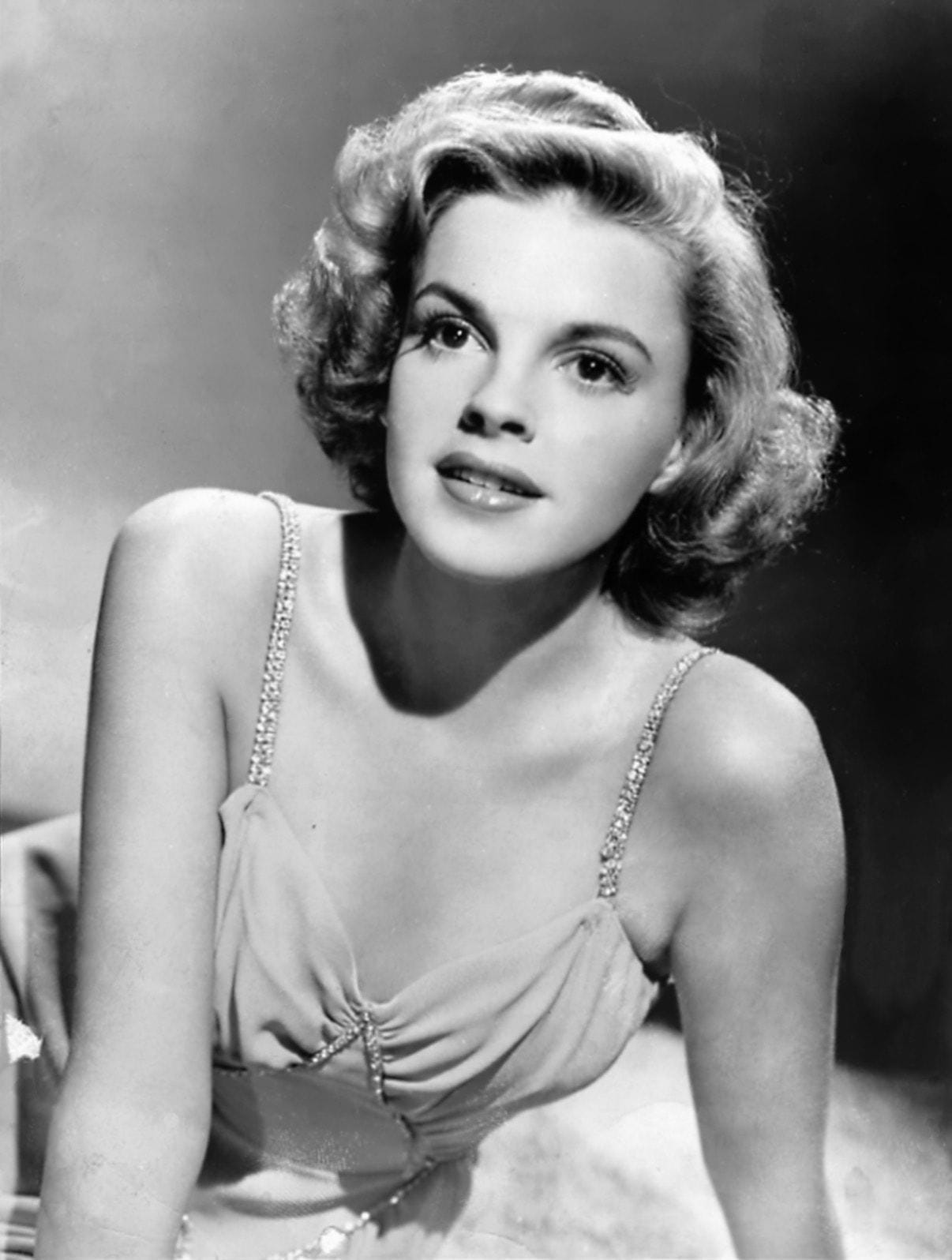Judy Garland (1922-1969) was a legendary American actress, singer, and dancer. Rising to fame as Dorothy in “The Wizard of Oz” (1939), she became an enduring icon of Hollywood’s Golden Age. Garland’s remarkable talent extended to musical performances, earning her acclaim for songs like “Over the Rainbow.” Despite personal challenges, she left a lasting legacy in entertainment.
Frances Gumm was part of a vaudeville family, where she and her sisters performed as the Gumm Sisters. Recognizing their daughter’s extraordinary vocal talent, Judy’s mother, Ethel, became her manager, guiding her career from a young age. The Gumm family relocated to California in the 1920s, seeking better opportunities in the entertainment industry.
In 1935, Frances Gumm officially became Judy Garland after the studio suggested a name change. This marked the beginning of her association with the Metro-Goldwyn-Mayer (MGM) studio, where her star would rise to unprecedented heights. Garland’s early years at MGM were marked by a series of musicals, including “Broadway Melody of 1938” and “Thoroughbreds Don’t Cry.” Her exceptional voice and charismatic stage presence set her apart from her peers, establishing her as one of Hollywood’s brightest young talents.
However, it was the role of Dorothy Gale in “The Wizard of Oz” (1939) that catapulted Judy Garland to international fame. The film became a cultural phenomenon, and Garland’s rendition of “Over the Rainbow” remains one of the most iconic performances in cinematic history. At just 17, she received an Academy Award nomination for Best Actress, marking a significant achievement for the young star.
Despite her success, Garland’s life behind the scenes was far from glamorous. MGM tightly controlled her image, dictating her appearance, weight, and even her personal life. The studio put her on a strict diet and introduced her to amphetamines to maintain her figure. These early experiences with substance use would later contribute to the challenges Garland faced in her adult life.
In the 1940s, Judy Garland continued to enchant audiences with her musical talents in films like “Strike Up the Band” (1940) and “Babes on Broadway” (1941). However, the pressures of fame and the demanding schedule took a toll on Garland’s mental health. She struggled with anxiety, insomnia, and the constant pressure to conform to Hollywood standards.
Garland’s career took a brief hiatus during World War II when she entertained troops overseas. Her performances during this period, often alongside other Hollywood stars, solidified her status as a beloved entertainer. However, the war years also marked the beginning of Garland’s tumultuous personal life, including her marriages to musician David Rose and director Vincente Minnelli.
In 1944, Garland received her second Academy Award nomination for her role in “Meet Me in St. Louis” (1944), directed by Vincente Minnelli. The film showcased her acting range and further established her as a versatile performer. Garland and Minnelli’s personal and professional collaboration continued, culminating in their marriage in 1945.
The post-war years saw Judy Garland’s return to the big screen in films like “The Harvey Girls” (1946) and “The Pirate” (1948). Despite her ongoing success, Garland struggled with personal issues, including her marriage to Minnelli, which eventually ended in 1951. Her career faced a downturn as her contract with MGM was terminated, reflecting the changing landscape of Hollywood in the 1950s.
Garland’s comeback began with her iconic role in “A Star Is Born” (1954), directed by George Cukor. Her performance as Esther Blodgett/Vicki Lester earned her another Academy Award nomination, and her rendition of “The Man That Got Away” is considered one of her greatest musical achievements. However, the film’s commercial success did not translate into an Oscar win for Garland, marking a bittersweet moment in her career.
The 1960s brought both triumph and tribulation for Judy Garland. She made a successful foray into television with “The Judy Garland Show” (1963-1964), earning critical acclaim and an Emmy Award. Despite its short run, the show showcased Garland’s enduring appeal and versatility as an entertainer.
However, Garland’s personal struggles continued, marked by a series of failed marriages and ongoing battles with addiction. Her erratic behavior and struggles with substance abuse led to professional setbacks, including difficulties securing insurance for film projects. Despite these challenges, Garland continued to perform, captivating audiences with her live concerts.
One of Garland’s most memorable performances occurred at Carnegie Hall in 1961. The recording of the concert, titled “Judy at Carnegie Hall,” won multiple Grammy Awards and is often cited as one of the greatest live albums in history. The success of the album reaffirmed Garland’s status as a live performer of unmatched talent and emotional depth.
As the 1960s progressed, Garland’s health deteriorated further, exacerbated by her struggles with substance abuse and the toll of her tumultuous personal life. Her last film role was in “I Could Go On Singing” (1963), a semi-autobiographical drama that mirrored aspects of her own life. The film showcased Garland’s ability to blend acting and music, providing a poignant reflection on fame, love, and the cost of stardom.
On June 22, 1969, at the age of 47, Judy Garland passed away in London. The cause of death was officially ruled as an accidental overdose of barbiturates. Garland’s death marked the end of an era and left a void in the entertainment world. Her funeral, attended by a multitude of fans and celebrities, reflected the impact she had on generations of admirers.
Judy Garland’s legacy endures through her contributions to film, music, and stage. Her influence on the entertainment industry is immeasurable, and her struggles with mental health and addiction have sparked important conversations about the pressures of fame. Garland’s ability to connect with audiences on a deep, emotional level remains unparalleled, and her timeless performances continue to captivate new generations of fans.
